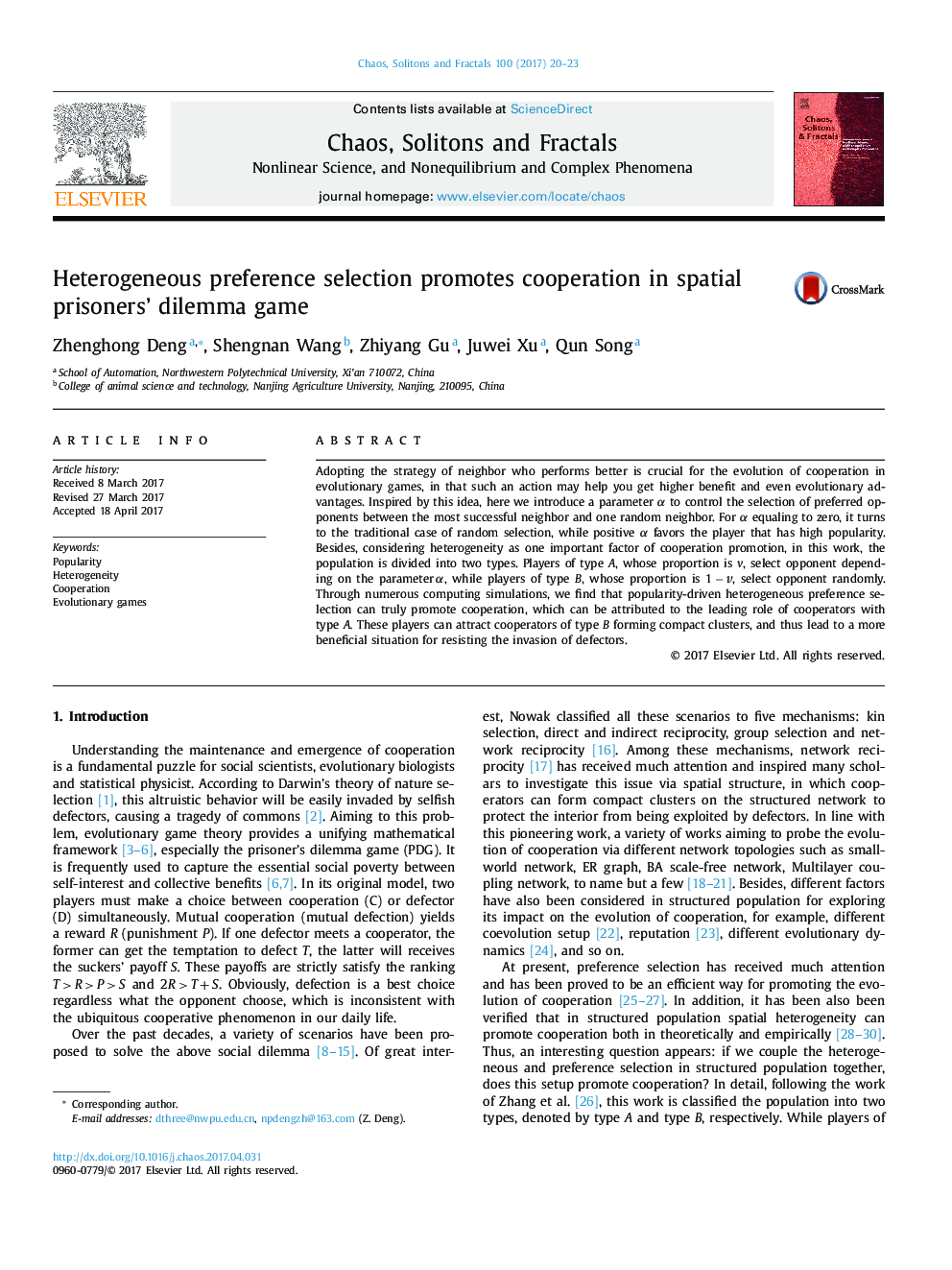| Article ID | Journal | Published Year | Pages | File Type |
|---|---|---|---|---|
| 5499614 | Chaos, Solitons & Fractals | 2017 | 4 Pages |
Abstract
Adopting the strategy of neighbor who performs better is crucial for the evolution of cooperation in evolutionary games, in that such an action may help you get higher benefit and even evolutionary advantages. Inspired by this idea, here we introduce a parameter α to control the selection of preferred opponents between the most successful neighbor and one random neighbor. For α equaling to zero, it turns to the traditional case of random selection, while positive α favors the player that has high popularity. Besides, considering heterogeneity as one important factor of cooperation promotion, in this work, the population is divided into two types. Players of type A, whose proportion is v, select opponent depending on the parameterâα, while players of type B, whose proportion is 1âv, select opponent randomly. Through numerous computing simulations, we find that popularity-driven heterogeneous preference selection can truly promote cooperation, which can be attributed to the leading role of cooperators with type A. These players can attract cooperators of type B forming compact clusters, and thus lead to a more beneficial situation for resisting the invasion of defectors.
Related Topics
Physical Sciences and Engineering
Physics and Astronomy
Statistical and Nonlinear Physics
Authors
Deng Zhenghong, Wang Shengnan, Gu Zhiyang, Xu Juwei, Song Qun,
